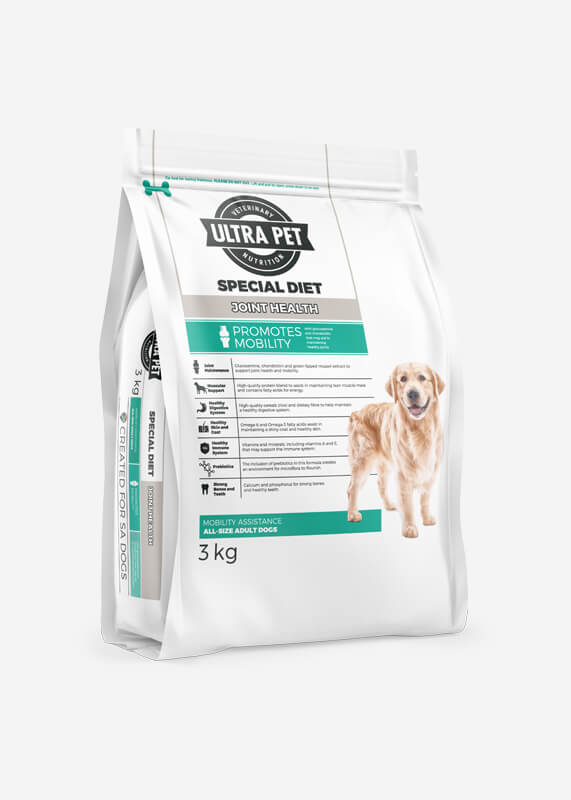Excellent Tips For Choosing Natural Dog Company
Wiki Article
Omega-3 Fatty Acids For Dogs And Cats - How Can They Help Joint Health?
Omega-3 fatty acids, particularly EPA (eicosapentaenoic) as well as DHA(docosahexaenoic) is significant roles in maintaining and improving joint health in cats and dogs. How they work:
Anti-inflammatory properties
Reduce Inflammation
Function Omega-3 fatty acids are known for their powerful anti-inflammatory properties. They reduce the production of proinflammatory chemicals like eicosanoids or cytokines that can cause inflammation.
Benefits In reducing inflammation within joints, Omega-3s reduce swelling and pain associated with conditions like arthritis. It allows pets to get more comfortable, thus improving their overall quality of living.
Joint Lubrication and Health
Improved Joint Lubrication
Function Omega-3 fatty acids to maintain the health of synovial fluid, which helps to lubricate the joints.
Benefits: Improved friction results in more smooth joints, less friction, and reduced wear and tear on cartilage. It's particularly beneficial for pets that have joint problems or are at risk.
Cartilage Protection and Repair
Cartilage Protection:
Function: Omega-3s are beneficial to cartilage since they decrease the activity of enzymes that contribute to destruction of cartilage.
Benefits: Preventing cartilage degradation can aid in maintaining joint strength and can even slow the progression of ailments like osteoarthritis.
Immune System Support
Immune System Regulation:
Function The function of these fatty acids is well-known for their ability to regulate and balance the immune system.
Benefits: A well-regulated immune system can better handle joint issues, while avoiding the development of joint inflammation and injury.
Enhanced Mobility and Comfort
Improved Mobility
Function In reducing inflammation and preserving joints, Omega-3s can help pets move more easily.
Benefits: Pets, especially older pets or those suffering from arthritis, typically show greater mobility and less pain that can lead to a more active and comfortable life.
Additional Health Benefits
Overall Health
Function The Omega-3 fatty acid supports cardiovascular, skin and coat health which can contribute to overall pet well-being.
Benefits: A pet with a healthier body will likely to be more active and maintain joint health as time passes.
Considerations and Usage
Dosage and Administration: The correct dose of Omega-3s will depend on the size of the pet and weight as well as specific health issues. The recommendation of the veterinarian or label instructions are important.
Omega-3s can be obtained through supplements with fish oil. These are a great source of EPA and DHA. Make sure to select products that are specifically designed for animals to ensure the safety of your pet.
Omega-3 supplements are generally safe for pets, but some may experience gastrointestinal upset or smell of fish. To minimize side negative effects, begin with a small dose and gradually increase the dosage.
Conclusion
Omega-3-fatty acids can have a positive impact on joint health and wellbeing for both pets and dogs. Their ability to protect cartilage and increase joint lubrication, as well as their anti-inflammatory properties contribute to a more efficient joint function. Regular supplementation will improve mobility for pets and encourage an active and healthy lifestyle. See the recommended collagen for dogs recommendations for site info including pet anxiety supplements, premium quality pet supplements, pet eyebright supplements, pet supplements for pets with nerve damage, pet supplements for pets with fear of grooming, pet prostate supplements, pet supplements for pets with fear of collars and harnesses, pet arthritis supplements and more.

What Does Omega-3 Fatty Acids Aid Animals And Cats With Kidney Failure?
Omega-3 fatty acrs, particularly EPA(eicosapentaenoic acr) and DHA (docosahexaenoic acr) can help manage kidney failure by supporting kidney health. What they do to help manage kidney failure is as the following:
Anti-inflammatory properties
Reduction of inflammation:
Function The Omega-3 fatty acids exhibit significant anti-inflammatory effects. They reduce the production of proinflammatory cytokines and eicosanoids.
Benefits - By decreasing the inflammation in kidneys, Omega-3s may help reduce the extent and severity of damage to the kidneys.
Blood Pressure Regulation
Lowering Blood Pressure:
Function Omega-3 fatty acids to regulate blood pressure by enhancing blood flow and reducing inflammation.
Benefits: Lower blood pressure can help protect remaining kidney functions and help slow the progression to kidney disease.
Proteinuria Reduction
Reducing Proteinuria:
Function: Omega-3s help to reduce the leakage into urine of proteins, also known as proteinuria. It is a frequent problem in kidney disease.
Benefits: Reduce proteinuria to stop further kidney damage.
Glomerular filtering rate (GFR), preservation
Helping to Retain Kidneys:
Function: Omega-3 fatty acids help ensure the vigor of glomerular filtering this is the process that helps kidneys purify blood.
Benefits: Keeping GFR levels stable levels is crucial for maintaining kidney function and also helping to prevent the development of chronic disease.
Appetite Stimulation (nutritional Support)
Improved Appetite
Function: Omega-3s can help improve appetite and overall nutritional intake in pets with kidney disease, who typically have a lower appetite.
Benefits: A better diet supports overall health and can aid in maintaining the weight of your body and increase muscle mass, which is crucial for pets suffering from kidney disease.
Cardiovascular Health
Aiding Heart Health
The function of Omega-3 acids is to enhance the health of your cardiovascular system by reducing inflammation processes, lowering blood pressure, and improving the blood-lipid profile.
Benefits: A better cardiovascular system reduces the chance of complications, such kidney disease or heart disease. It also enhances overall health.
Antioxidant Effects
Reducing Oxidative Stress:
Function: Omega-3 fats possess antioxidant properties which help to reduce the oxidative stress within kidneys.
Benefits: By decreasing the oxidative damage to kidney cells you can improve the function of your kidneys and limit the rate of progression of kidney disease.
The Use of the Internet
Dosage: The amount of omega-3 fat acids is determined by the weight, size and health needs of your pet. Follow the instructions on the label or those given by your veterinarian. Omega-3s are available in fish oil supplements for pets.
Omega-3 supplements for dogs are available in various types. There are chews and liquid oils. To ensure the safety and effectiveness of your pet it is crucial to select an item of the highest quality.
Omega-3 supplements can trigger gastrointestinal upset in some pets. It is possible to minimize side negative effects by starting with a lower dosage and increasing it over time. Important to keep an eye out for any side effects, like vomiting or diarrhea.
The article's conclusion is:
Omega-3 fatty oils can be beneficial in the management of kidney failure in cats and dogs. Their anti-inflammatory, blood pressure-lowering, proteinuria-reducing, and appetite-stimulating properties help support kidney function and overall health. Regular omega-3 supplementation can boost health and quality of life in pets with kidney disease. Take a look at the recommended probiotics for dogs tips for website tips including pet allergy supplements, dog supplements, cushings disease natural treatment, pet chamomile supplements, pet turmeric supplements, pet supplements for senior pets, dog supplements, yeast infections in dogs and more.

Probiotics Can Aid Dogs And Cats Suffering From Yeast Infections.
Probiotics could be beneficial in treating yeast infections in dogs and cats. They accomplish this by encouraging an equilibrium between microorganisms, both in the intestine and the skin. Probiotics can treat yeast infections.
Restorative microbial balance
Balancing Gut Flora:
Function: Probiotics assist in maintain a healthy balance inside the digestive tract.
Benefits Having a healthy gut bacteria aids in immune function and can reduce the growth of yeast, such as Candida which is a cause of infections. This helps combat the yeast infections throughout the body.
Competition with Pathogens
Contests with harmful Organisms
Function: Probiotics compete with pathogenic (disease-causing) microorganisms like yeast, for resources as well as space within the gastrointestinal tract as well as on the skin.
Benefits. In addition to outdoing other pathogens like yeast, probiotics are able to decrease their potential to cause diseases and can maintain a healthier microbiome.
Modulation Immune Response
Enhancing Immune Function
Function: They help support the immune system's functions by stimulating the production immune-regulating substances.
Benefits: A strengthened immune system can aid the body fight yeast infections and decrease the frequency of them.
Antimicrobial Substances: Production
Antimicrobial Factors that Influence Production
Function: Some probiotic strains can produce substances (such antimicrobial as Bacteriocins) that have a high efficacy against yeast-related pathogens.
Benefits: These substances are antimicrobial, and they can stop the growth of fungi, thus helping in tackling yeast infections.
Reduction of inflammation
Anti-inflammatory Effects:
Function: Probiotics have been shown to have anti-inflammatory effects, that can in reducing inflammation that is associated with yeast infections.
Benefits In reducing swelling, probiotics could reduce symptoms associated with yeast infections like itching, redness and achy.
Support for Skin Health
Maintaining Skin Barrier Function:
Function: Probiotics ensure the health and integrity of the skin barrier.
Benefits A healthy skin layer is less prone to yeast infections.
Use and factors
Types of probiotics: Select probiotic supplements containing strains that have been shown to improve skin health and reduce yeast infections.
The probiotics come in many forms like capsules, chewables, and powders. Topical probiotic formulations could also help with localized skin infection.
Probiotics must be taken for a long duration to prevent yeast infections and to maintain the balance of microbial activity.
Consultation with a Veterinarian Consult your veterinarian before you start probiotics for your pet. They can recommend the most appropriate probiotic strains, dosage, and duration depending on your pet's particular health needs.
You can also read our conclusion.
Probiotics can be an effective addition therapy to treat yeast infections in cats and dogs. Probiotics support the skin by improving the immune system, increasing microbial balance and reducing swelling. They can also reduce the frequency of and severity of yeast infections. As part of an overall treatment program, probiotics could improve the overall comfort of pets suffering from yeast infections. Read the top rated her explanation for kidney failure in cats for blog info including pet wellness supplements, pet supplements for pets with skin wounds, pet astragalus supplements, pet supplements for pets with shedding problems, natural pet remedies, pet milk supplements, kidney support gold, pet eyebright supplements and more.
